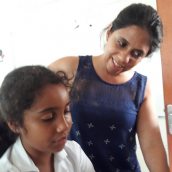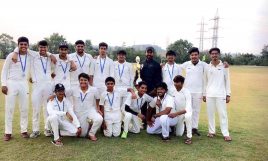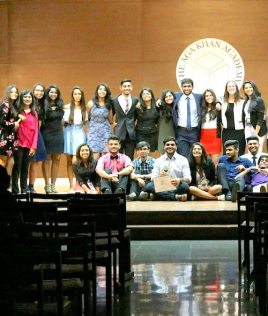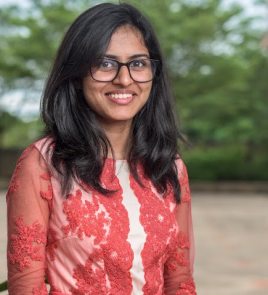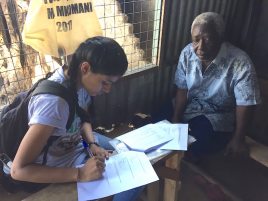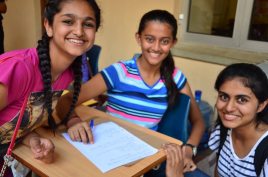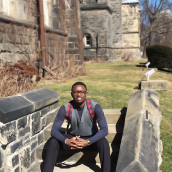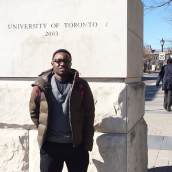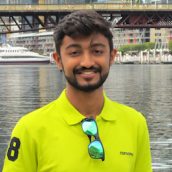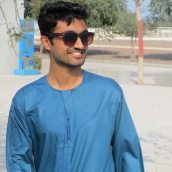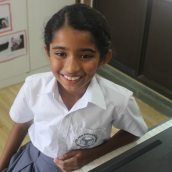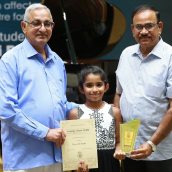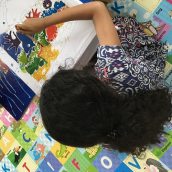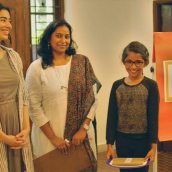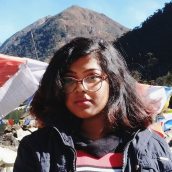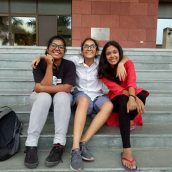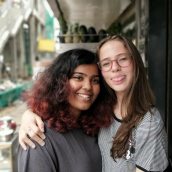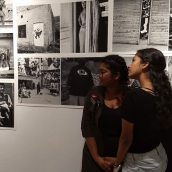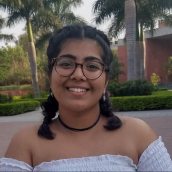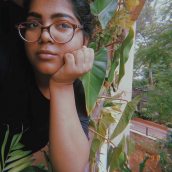Nuala Alibhai: Enriching educational and social programmes at the Academy
“The Academy through the International Baccalaureate curriculum has earned a positive reputation for its pluralistic approach, providing a holistic learning environment, developing leaders and achieving educational excellence.”
Nuala Alibhai is the Learning Student Support Coordinator for junior and senior schools at the Aga Khan Academy Mombasa. In this role, she works in collaboration with the Academy’s Principals to develop on-going systems of support for the student community. This includes providing leadership, management and advice on inclusion within the school to develop a differentiated programme that both challenges and meets the needs of students. She also ensures that the Student Support Unit effectively identifies students with any needs for additional support need, including gifted and talented, as well as vulnerable students.
She was born in Kenya where she acquired her basic education. She obtained her undergraduate degree from University College London as Speech and Language Therapist. Later she pursued her Masters in Inclusive Education, at the University of the West of Scotland where she completed her research in inclusive education at the early years level.
At the Aga Khan Academy Mombasa, Nuala works on a Value-based Education Programme, as a Curriculum Designer, through the Professional Development Centre at the Academy. She came to the Academy with a diverse background in inclusive education at a school, community and public policy level. “I was keen to apply this knowledge and skills within a mainstream school setting, to enable every student to achieve and succeed in school, career and life,” she remarks.
It has been Nuala’s endeavour to improve social outcomes through strategic planning and capacity building at the local government and community level. She is also passionate about designing and developing alternative educational programmes for vulnerable children, in order to ensure that they realise their full potential, so they can succeed in life as dignified equals. She has achieved both of these objectives by working for the past 15 years as a speech and language therapist and as an educational consultant in both the private and public sectors in Kenya and the UK.
Since September of 2016, Nuala has been with the Academy and appreciates how the Academy has provided her with opportunities to develop her teacher training skills and curriculum development skills. Nuala says, “I enjoy working with teachers who bring their hands on experience in the classroom and subject relevant knowledge to the table so we can enrich the educational and social programmes at the Academy.”
When asked what led her to choose a career in teaching, Nuala replies, “Karma! I started my career as a health professional but on my return to Kenya, I was sought after to do training, policy work and change management in the education sector. As my experience and confidence in the area grew, I began specialising in education. I have always seen myself working with children, so education was also an attractive choice.”
According to Nuala, the International Baccalaureate (IB) curriculum and the Aga Khan Academy strands set the Academy apart from other educational institutions. “It is one of the few schools in Kenya that offers the IB curriculum, which I consider to be the gold standard in education because of its holistic approach, academic rigor and emphasis on community service. The strands are added dimensions that help students make better sense of themselves, others, the world around them and the interconnectedness of all these elements.”
In terms of ensuring a climate of pluralism on campus where students from different racial, ethnic and faith backgrounds work together, Nuala feels the pluralism strand is already integrated into the lessons in the classroom, extracurricular activities after school and during out of school activities. “Collaboration skills are one of the approaches to teaching and learning, so students are exposed to activities that encourage and enable them to work with others who are different from them and have different opinions than them. They are encouraged to listen to others respectfully and consider their perspectives. This builds communication skills and empathy in students. These skills are then transferred to the student’s day-to-day interactions and not only in the classroom,” she reiterates.
When asked about the most rewarding aspect of teaching at Aga Khan Academy Mombasa, she replied, “The collaborative spirit and practice amongst the staff.” She further adds that there is appreciation and inclusion of every individual’s knowledge, skill and experience in decision-making. According to Nuala, strategies and unit plans are collectively produced not only to enhance the quality of the teaching and learning experience for the student, but also to allow the adult to grow, as a professional, in the process. “The teachers on the whole are approachable, warm and a joy to work with,” she comments. Parents are also involved as much as possible in their children’s education, she mentions. Parents get regular updates from the school on their child’s progress and well-being and are given recommendations of how to extend the learning and support beyond the walls of the school, she adds.
Nuala strongly feels that her position at Aga Khan Academy Mombasa has given her the opportunity to individualise the learning for every student. “My prayer is that this opportunity helps them become more self aware, reveal their talents and inspire them to make bigger strides forward with direction and confidence.”
Kelvin Bagthariya: Generating positive change with resilience
Kelvin Bagthariya, a second-year Diploma student at the Aga Khan Academy Hyderabad, believes that his time at the Academy has taught him one thing in particular: resilience. Kelvin joined the Academy in year 9, and having come from a small town in Gujarat, it was a completely different environment. He believes the Academy has changed his mindset, teaching him to become independent, improving his self-esteem and allowing him to pursue his passion to make a change in his community.
“It was hard for me in the ninth grade as I grew up in a conservative society where people had closed mentalities and viewed life with confined perspectives – it was totally opposite when I came [to the Academy]. I was surrounded by people from diverse communities, with different perceptions and different approaches towards learning. Coming here to the Academy made me adapt to the pluralistic environment, helped me overcome new challenges and integrate [His Highness’s] vision towards my learning.”
For Kelvin, the attitude and assistance of the staff, teachers and his peers at the Academy were the reasons behind his resilience through this tough transition, especially in adjusting to a new way of learning and thinking. They were extremely encouraging towards Kelvin, which empowered him to take responsibility, get involved in enrichment activities and take on leadership roles.
“The journey has [inspired] many transformations in me since I joined. If I recall my first day [at the Academy], everything was new to me. I felt I wouldn’t be comfortable or accepted, and the first few months were lonely. But what the Academy has taught me is that you have to be independent. The Academy offers various opportunities from sports, service projects and various events. …Throughout my journey, being part of the school cricket team, participating and leading various service projects, being head of logistics in Model United Nations, summer internships, school trips and participating in cultural events has shaped me as an individual. It is very different from other schools. The journey wasn’t easy and couldn’t have been possible without my peers, teachers and assistance staff. After four years, if I look at myself, it is a proud moment for me.”
During his four years at the Academy, Kelvin has particularly enjoyed being part of the cricket team, Model United Nations, initiating the organic farming project at the Academy and doing a summer internship with the Aga Khan Foundation. Kelvin explains, “Enrichment activities give you a taste of real life and how it works.”
Through these enrichment activities and involvement in the community at the Academy, Kelvin was encouraged to contribute to the community in his hometown. “I am very passionate about bringing change in the society. When I see a problem, I want to make a change. I have the passion to be a leader and take responsibility. I always want to take initiative.”
Kelvin has taken initiative on an issue close to his heart and one of most pressing public health issues in his hometown: tobacco addiction. Kelvin lost a close friend to tobacco addiction, so he decided to partner with institutions in the Ismaili community such as the Aga Khan Education Board and the Aga Khan Youth and Sports Board to run a campaign to inform people about the consequences of addiction through a short movie that he scripted and acted in. He also created a youth group, worked with families struggling with addiction, visited schools and vulnerable areas, and organized health checkups. The project even received an award from the local government for its effort to mitigate tobacco addiction.
“I felt proud when 15-20 people came to me and said they are no longer addicted,” Kelvin shares.
Kelvin owes his enthusiasm to take initiative to the Academy, where he had always been motivated to do the same through his CAS and enrichment activities.
After graduating from the Academy, Kelvin wishes to pursue a degree in computer science in Canada. He hopes to use his education to work for the good of society, in particular for the Aga Khan Development Network and in the direction of His Highness the Aga Khan’s vision of improving the quality of life of people.
“His Highness says when you leave the Academy, you should be working for change in your own community. I have the responsibility as a global citizen to make a change””
By Inaara Gangji
Kamila Janmohamed (Class of 2018): Reflecting on immense personal growth
My four-year journey at the Aga Khan Academy Mombasa came to a close at a much faster pace than I am comfortable with. With graduation having recently taken place, I can’t help but look back at the immense growth I have undergone personally, socially and intellectually during my time here.
The prospect of joining the Academy had always sat passively on the horizon – I had cousins pass through the Diploma Programme here long before me, and a sister who soon planned to make the shift. So, at the age of 14, it didn’t come as much of a surprise when my parents suggested I move with her.
Leaving the comfort of my home and the company of friends with whom I had spent my entire academic career proved a lot harder than I anticipated. Coming from Dar es Salaam, Tanzania, I faced less of a culture shock than many incoming students I would interact with over the years, but this didn’t soften the blow of finding myself in the middle of an entirely new education system. Here I was, an anxious teenager who had long since associated learning with the contents of a textbook, now being introduced to criteria, conceptual understanding and inquiry-based learning, all of which seemed like another language to me. Like most who have been in my position, I felt alarmingly overwhelmed by the sheer magnitude of responsibility I had to take, both for my learning as an MYP (Middle Years Programme) student, and my well-being as a residential student.
I was lucky enough to have a dorm parent that year who was very perceptive to these challenges, and through her support, and that of several of my class teachers, I was able to integrate relatively seamlessly into life at the Academy. I was particularly struck by the attitude towards learning harboured by my peers, many of whom viewed it as a communal effort and helped me adjust to the new system. This culture of intellectual humility is something that I am honoured to have been able to contribute to over the last 18 months, by tutoring MYP students in subjects I found particularly challenging in the programme.
True to the school’s mandate to develop holistic individuals, I was encouraged to join several extracurricular activities, which empowered me to pursue my passion for learning and service. One of these was a community and service group called Learn and Earn, which operated under the residential programme’s weekend activities. As the coordinator for logistics and communication, I helped organise weekly sessions with students from a nearby school where we carried out activities to promote life skills, as well as sell food items that we had cooked together to raise funds for the renovation of their school’s kitchen. This was my first experience with planning and executing a project of such a scale, and it increased my interactions with members of both the school and the surrounding communities. That same year, I was encouraged by my biology teacher to participate in the 2015 Golden Climate Olympiad where my project on cost-effective biogas digesters earned a silver award.
Two years later, I drew on my experiences as a younger, and newer, student at the Academy to fulfil my role as a Dorm Captain. I have viewed this opportunity as one of my greatest ways of giving back to the community I have grown so much in. In addition to organising orientation activities and events for the residential community, my role has required me to serve as a bridge between the students and the teachers. In considering the perspectives of both parties when discussing administrative issues, I have developed a deeper understanding of the importance of good communication and empathy. By playing a coordinative role, I have been able to engage directly with the sheer diversity of the school community. Interacting with individuals of various backgrounds and opinions has taught me the importance of engaging in open-minded and meaningful dialogue, which has enabled me to broaden my horizons. As a student leader, I have come to appreciate the importance of respect for individuals not because of the authority they hold, but simply because of the fact that they are people, a value that resonates strongly with the Academy’s vision.
Learning to balance these responsibilities and my commitments to other extracurricular programs with the demands of the rigorous International Baccalaureate Diploma Programme has stretched my abilities to manage and organise my time. Most of my courses have involved an extensive amount of critical thinking and have taught me not to look at academic subjects as separate entities. This has in part been catalysed by my Extended Essay on the economic implications of stroke, which focused on biology and economics. As a result, I have been able to make more meaningful conclusions from my learning, and to question things better. I am particularly grateful to my English teacher, whose classes stimulated thoughtful discussions about our world and why things are the way they are. Such platforms have been abundant in my time at the Academy, giving me the opportunity to voice my opinions, take on issues that I am passionate about and to develop a strong social conscience that has helped shape my identity.
As I consider what life will be like after graduation, I find myself saddened by the fact that I will soon be in a new environment without the strong network of support from teachers and students I have built here at the Academy. To these people, and my family of course, I owe not only my intellectual growth but also the strong sense of self I have developed. These are things that I hope to carry with me as I move on to pursue a degree in Global Affairs at Yale University, now with a larger family, concentrated in a region of the world I look very forward to coming back to work in.
By Kamila Janmohamed
Kelvin Njue (Class of 2015): Changing lives through education
“I believe that with education, people have the power to tackle and solve problems that affect their communities,” reflects Kelvin Njue, a graduate from the Aga Khan Academy Mombasa.
Upon graduating from the Academy in 2015, Kelvin was unsure if he would be able to pursue higher education until he received an email about the Ontario Tuition Waiver Programme from his university counsellor at the Academy.
“I intended to go to university straight after high school, but I needed to take a gap year so that I could find the means to attend university.”
During his gap year after graduating, he found out about the waiver programme.
“I applied as I knew acquiring a university education would change my life and would open up many other opportunities. Without the tuition waiver programme, I was going to struggle to attend an institution of higher education. It gave me hope and is something that has allowed me to access quality education.”
During his gap year, Kelvin interned at the Diamond Trust Bank in Nairobi, assisting clients with their day-to-day banking needs and providing customers with banking solutions.
Kelvin is currently enrolled in the faculty of arts and science at the University of Toronto, aspiring to complete the financial economics (specialist) programme with a minor in employment relations. Kelvin shares his love for economics.
“I have always had an interest in economics and have wanted to study it since high school. I wanted to find a job during my gap year that would allow me to apply concepts in economics. I felt that working in the bank aligned with both my academic and career aspirations.”
In his first year of university, Kelvin was enrolled in economics, mathematics and sociology courses, of which sociology has been his favourite.
“I am really enjoying looking at social inequality and social institutions and how society functions. It ties into economics really well and how society works in different ways.”
When Kelvin is not studying, he spends his time playing intramural volleyball, playing drums with students from his dormitory and exploring Toronto. For Kelvin, one of the biggest adjustments he had to deal with in his move to Canada was the weather.
“I have been away from my family for many years attending school, so that wasn’t as difficult for me. The hardest thing for me was getting adjusted to the weather in Canada.”
Kelvin has embraced the cold winters in Canada, learning to ice skate this past winter. Kelvin is hoping to become more involved with extracurricular activities offered by the University of Toronto next year.
“For next year, I would like to join the Business Board on the University of Toronto governing council board. The opportunity allows members to manage different business activities that take place around the university and I am very interested in this. I also want to explore different sports next year and would like to join intramural teams.”
One of Kelvin’s passions that began to cultivate throughout his time at the Academy is ensuring that all people have access to a quality education.
“Because I have had so much support from the Academy and different programmes that helped to finance my own academics, I would also like to give this opportunity to other children to get the same quality of education that I have been able to acquire. I want to start up an organisation or programme that can offer financial support or scholarships for students so that they can also attend school and get an education.”
During his time at the Academy, Kelvin was able to visit a slum in Nairobi and worked with students from Grades 1 to 6 for a six-week period, partnering with the Aga Khan Foundation to distribute reading materials, books, pencils and bags to students living in the community. Kelvin attributes his passion for wanting to make a change in the world to his time at the Academy.
“I think the Academy was able to give me self-confidence and motivated me to believe that I am an agent of change in making the world a better place and that I should always take every opportunity to make a change, no matter how big or small it is."
By Karina Hussein
Jemin Patel (Class of 2018): A journey of hard work, passion and striving for excellence
Jemin Patel’s journey to where he is now is the result of hard work and passion, values he picked up during his time at the Aga Khan Academy Hyderabad. Yet his story started sometime before this, when he was selected to attend the large, 100-acre Academy through a full scholarship.
Starting in the Academy as a Grade 8 student, Jemin felt all the nervousness of moving to a new place and starting at a new school. He felt out of place, not knowing whether he would succeed. Although he knew this would be difficult, he embraced the notion of working hard, instead of working smarter.
“I’ve learnt that hard work always wins,” he said. “People say, ‘work smart, not hard’. I could not disagree more. Working smart makes you efficient, whereas working hard with a focused mindset makes you a high performer.”
Although it has been five years since he graduated, Jemin continues to visit the Academy to coach and interact with students. He expressed how he felt like a big brother passing on the torch and imparting wisdom he would have loved to have during his time at the Academy. During his most recent visit, Jemin met the founder of the newly formed SAGE (Sexuality and Gender Expression) club at the Academy and felt so proud of the students.
Now, working at one of Canada’s top accounting and consulting firms, Ernst & Young, specialising in audit and assurance services, Jemin still stands by the notion, “hard work always wins.”
“It’s not about perfection, it’s about striving for excellence,” he said. “Putting in a focused and genuine effort into everything you do is all that matters.”
Interview conducted by DP2 student Samhitha Paruchuri from the Aga Khan Academy Hyderabad.
Enquiry form
Enquiry Form - entry august 2013
Please complete the form below to help us get to know your family better. We will only use this information for enquiries and admissions purposes and will not distribute to any third parties.
Imtiyaz Hariyani (Class of 2014): From Hyderabad to Abu Dhabi and beyond
Imtiyaz Hariyani credits the Aga Khan Academy Hyderabad with giving him more than just the academic skills he needs to succeed at the undergraduate level. In his words, it has also provided him with “the ability to thrive in a pluralist society and function in an intellectually and culturally diverse setting.” This is particularly fitting for Imtiyaz as he has had experiences in various parts of the world: he has just finished in degree in Biology at NYU Abu Dhabi and has undertaken opportunities in Mombasa and Lisbon. He is working towards a career in research in Molecular Biology or Bioinformatics.
Imtiyaz is from Pune, India and first heard about the Aga Khan Academy Hyderabad in Feburary 2012 – he distinctly remembers making the decision to attend. His parents attended a seminar conducted by the Academy in Pune but they hesitated to ask Imtiyaz if he would be willing to study all the way in Hyderabad. For Imtiyaz, who had grown up at home and was attached to his family, their uncertainty was justified. And yet, he replied, “Why not?”
“Undeniably,” says Imtiyaz, “that day has shaped my career and is the reason for my academic progress and journey to NYU Abu Dhabi.”
At AKA Hyderabad, Imtiyaz was introduced to the merits of a global education and the International Baccalaureate programme. He quickly became familiar with an educational style quite different from what he had experienced in middle school: instead of rote learning, the Academy focuses on understanding concepts in a hands-on, practical manner. Imtiyaz believes that this approach to teaching, along with an emphasis on extra-curricular activities under the banner of Creativity, Activity and Service, led him to redefine what it means to be educated.The Academy in Hyderabad offered students outlets to shape the school’s future. “In the senior school’s first year of establishment, we also received the opportunity to initiate activities that would turn into legacies,” Imtiyaz recalls. With a classmate, he transformed his passion for cricket into the AKA Hyderabad Cricket League, now in its sixth season. “As an alumnus who returned to the Academy three years after graduating,” he reflects, “I was immensely proud to see how the students have respected and maintained the legacies set by the Class of 2014 and have contributed to uplifting their standards to an extraordinary level.”
After graduating from the Academy, Imtiyaz took a gap year and was offered a five-month internship at the Aga Khan Academy Mombasa. There, he tutored students in various subjects, supported the cricket team, and mentored a group of Middle Years Programme students.
Imtiyaz’s internship in Mombasa was the beginning of his global experiences in the past few years. “Mombasa was the first time I had left my country in twelve years and the fact that I was going to a new continent knowing nobody was intimidating at first,” he remarks. “Fast forward two and half years – it has become an essential part of my life.”Last summer, Imtiyaz pursued a research program in Lisbon, the city which is host to the Global Seat of the Ismaili Imamat. There, he celebrated the Diamond Jubilee of His Highness the Aga Khan, the Imam of the Ismaili Muslim community and founder of the Aga Khan Academies, which he thoughtfully describes as “the perfect occasion to rejoice and reflect upon life after the Academy, and to express our gratitude to the Imam who has served the worldwide community for sixty years and has contributed to uplifting the quality of countless lives globally.”
Currently, Imtiyaz is working as a Research Assistant at NYU Abu Dhabi. Imtiyaz attributes his desire to seek the best in his university education and to learn first-hand about other countries and cultures to his experience at the Academy in Hyderabad and the vision of His Highness the Aga Khan.
“The spirit that the Academy embedded in me has allowed me to emerge as a global scholar with the support of my family and lifelong friends that I made in Hyderabad and elsewhere,” he explains. “From Pune to Portugal, I believe this journey is a result of His Highness’s tireless efforts in the field of education, and the Academies which have implemented this vision with great success.”
By Natasha Pirani
Aanya Athota - Junior School's budding concert pianist
Eshwari Ramsali (Class of 2018) - fusing art and ideology
“Honestly, it still hasn’t hit me that I get to go to the college of my dreams,” she said. “It’s so surreal.”
Two years ago Eshwari wrote an entrance assessment test at the Aga Khan Academy Hyderabad but was not sure if she would be able to join.
“I was dismayed because I loved the concept of an IB education,” she said. “The Academy made it possible for me to be here.”
Eshwari joined the Academy in 2016 and used every opportunity to learn and to express herself, diving into visual arts and global politics courses. She attributes a lot of her personal and intellectual growth to the discussions she had in her Theory of Knowledge (ToK) class.
“It upsets me that I will never have another ToK class,” she mused.
After her creativity, activity, service (CAS) summer internship in Dehradun, Uttarakhand, Eshwari stayed on to do an internship at a film production house, working in production and postproduction on documentary films.
“I like to call it the summer I became a feminist,” she said. “Feminism, for me is a social movement whose success lies in providing equal opportunities for all sexes and genders.”
For Eshwari, it is natural for film and feminism to go together. She describes art and politics as her academic crushes and appreciates the IB for having the accoutrements that allow for interdisciplinary approach to learning. Her extended essay combined visual arts and global politics to write a compelling piece on freedom of expression and art activism. Eshwari’s display at the 2018 Diploma Programme Visual Arts Exhibition also espoused the mingling of subjects, presenting work with powerful feminist overtones.
“Eshwari has exemplary artistic calibre,” said Senior School art teacher, Vijayraghavan Srinivasan. “She has a meta-narrative quality in her pictorial composition which captures recollecting past memories and incidents, fusing them with self-discovery."
The DP Visual Arts Exhibition is a red letter day for Senior students and they work long hours to see it come to life.
“Personally explaining my art and concepts to viewers and seeing realisation dawn on their faces was incredibly rewarding,” Eshwari said. “The exhibition was so important for so many different reasons, and being a part of it with some of the most talented students of the Academy made me happy.”
Eshwari remembers not being confident about her decision to join the arts programme at the Academy, but she’s pleased that she did. Through the programme, Eshwari got to work with professional artists and sculptors, and also discovered artists and filmmakers whose work inspires her and helps her identify herself. Vijayraghavan describes her artwork as insightful and contemplative, and also explorative.
Though she is an exceptional artist, Eshwari wants to study political science so she can pursue a career as a humanitarian lawyer or work in development. She intends on taking courses in art history, so that she can seamlessly step back into the art world, should the opportunity arise.
“The idea of being intellectually stimulated even well into my 50s really excites me.”
Somewhere between learning about the IB and her last ToK class, Eshwari fell in love with the Academy.
“I love that my classes are filled with students from all parts of the country,” she said, “irrespective of their financial standing or cultural background. I strongly believe it helps build our vision of pluralism.”
We wish her and all the rest of the Class of 2018 the best of luck in all their future endeavors!
Yamini Nibhanupudi (Class of 2014): Looking at activism through a filmmaking lens
In an honest commentary on the creative process, filmmaker Stanley Kubrick said, “I do not always know what I want, but I do know what I don’t want.” The philosophy behind this method can be extrapolated to the lives of creatives, who wear many hats on their way to becoming who they are.
Yamini Nibhanupudi graduated from the Aga Khan Academy Hyderabad in 2014 having focused on maths and sciences in the International Baccalaureate (IB) Diploma Programme. Since then, she has roamed the highways of academia, always preferring the scenic route. She studied social sciences, stopped along the way to dabble in research and policy work and ultimately discovered a passion for filmmaking. “For me,” she says, “deciding to stay in India and continue a life here is the best decision I made.”
After graduating from the Academy in Hyderabad, Yamini joined the Tata Institute of Social Science (TISS), Tuljapur, enrolling in their School of Rural Development. Here she studied political science, gender studies, history and sociology. During this time she worked with the Foundation for Democratic Reforms in Hyderabad, a think tank dealing with policy making. She also interned with the Aga Khan Rural Support Programme at Khandwa in Madhya Pradesh, working with farmers and marginalised communities.
“I always wanted to work with people who spend every single day without any resources at their disposal, to work on the pressing issues that exist in India, issues that most of us never see through our rose-tinted glasses. I never lived under the illusion that I would be able to improve the lives of people in India, but I would like to.”
Writing her final paper as an undergrad, she realised how she could authentically contribute to society. Yamini wrote her dissertation on "Gender Roles in the Telugu Film Industry". As she delved deep into the paper, she recognised her long-held passion for film. She was then accepted by TISS, Mumbai’s School of Media Studies the same year.
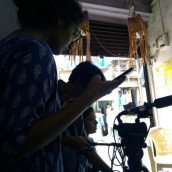 Her choice was validated almost immediately, getting to work at a production house in Mumbai at the end of her first year. She then won a competition, getting a one-minute silent film, “A Mute Point”, funded, which was screened at the 16mm Film Festival by Harkat Studios. “It’s been quite a ride since graduating in 2014,” she says looking back, “and I honestly wouldn’t have it any other way.” She is on track to graduate with a master’s in media and cultural studies in May 2019.
Her choice was validated almost immediately, getting to work at a production house in Mumbai at the end of her first year. She then won a competition, getting a one-minute silent film, “A Mute Point”, funded, which was screened at the 16mm Film Festival by Harkat Studios. “It’s been quite a ride since graduating in 2014,” she says looking back, “and I honestly wouldn’t have it any other way.” She is on track to graduate with a master’s in media and cultural studies in May 2019.
Using her passion for filmmaking, Yamini hopes to make a responsible, self-aware contribution to help be a part of a positive change in her country.
“I would like to be able to tell the people's stories with them, with their permission and with their direction. I know for a fact that I can’t, and in fact shouldn’t be their voice, but I can do everything in my power to back their voices.”
Yamini is a strong proponent of public and government universities. She believes they are the gateway to a range of education opportunities available in India and they create an avenue to meet people from across the nation.
“I think most people who go to IB schools don’t see India as a viable option to study for their years in university,” she says. “Unfortunately, most of them never truly realise the kind of exposure that you can receive here. A lot of people might argue that they would gain more exposure and a better understanding of the rest of the world by going abroad. But they have never stepped out of their city in India and a lot of them rarely have friends out of their social class in the country. I have been lucky to learn from wonderful people about the work they have done or what they intend to do with their lives, and India in itself has such wonderful and diverse cultures that I would probably never have ever been exposed to had I studied elsewhere.”
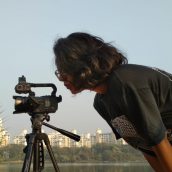 For Yamini, the IB education she received at the Academy was significant to her and went beyond the learning she received in the classroom.
For Yamini, the IB education she received at the Academy was significant to her and went beyond the learning she received in the classroom.
"The IB teaches you to think critically and to question everything. Rote learning is so persistent and the norm; the IB existed as a breath of fresh air for me. The Academy also prepared me for a lifelong affair with academia. I learnt to love research to the extent that I have considered going into teaching and pursuing a PhD. Being part of a community like this, which continues to check up on its alumni, and which continues to be there for us years after we have graduated, is an immense source of pride.”
Yamini’s education has been broad and diverse, incorporating the complexity of sciences, the gentility of humanities and the adroitness of cinema. But unlike the Kubrik-ian creative littering the highway with discards, she uses detours to inform her work and her personality.
“I never really had any clarity about what I wanted to do, but now that I do, I’m pushing towards it with all the energy in me.”
Written by Ajay Sundaram
